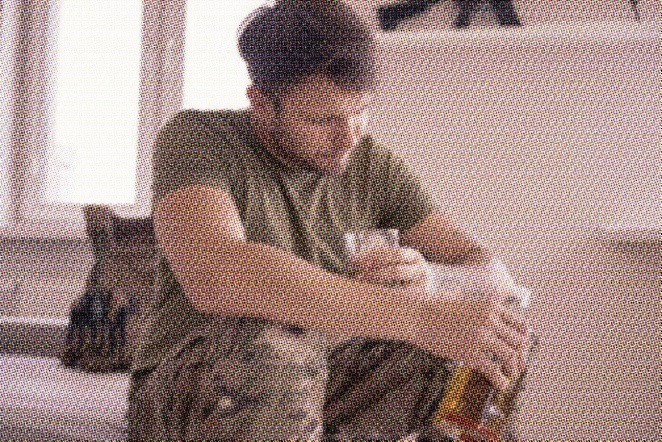Group Support Through Alcoholics Anonymous (A.A.)
Returning veterans who suffer from PTSD may develop issues of chemical dependency. Many suffering with PTSD self-medicate using alcohol or drugs to relieve excessive feelings of anxiety and depression. Treatment should include individual psychotherapy but for long-term sobriety, Alcoholics' Anonymous' Twelve Step Program is also of value to many. A.A. offers a safe haven for individuals who are afflicted with alcoholism and drug addiction. Those who join and remain in the Twelve Step Program find the support to reclaim their "self" and rebuild their lives. The program "works if you work it," according to an old A.A. adage. I attended an A.A. "open meeting" (in which someone who is not alcoholic but would like to learn more is welcome to attend; "closed meetings" are only for those who are working on recovering from alcoholism) in an effort to learn more about the program. It was an incredible experience.

From the start of the open discussion, the members introduced themselves and then spoke about their efforts to do the right thing. One by one, they volunteered their stories of struggle and strength acquired from their participation in the A.A. group. Many echoed the sentiment that they felt most at home at their A.A. meetings and that they knew they were always one arms length away from a drink. A.A. gave them the support not to reach for it.
Alcoholics and drug abusers come to A.A. when their lives have “become unmanageable,” a phrase found in Step One of the Twelve Steps. At the root of Step One is acceptance of ones’ powerlessness over alcohol and drugs. In A.A., the members share their trials and tribulations, which stem from their addiction, within a safe forum. The alcoholic or addict has to get in touch with himself or herself and discover the “personality defects” and “shortcomings” which helped contribute to the addiction in the first place. Some of these defects are self-centeredness and immaturity. Immaturity causes people to respond to life in a self-defeating way. As the alcoholic comes to accept that drinking is out of his or her control, regular
attendance at A.A. meetings will help support their recovery.
According to Robert Cancro, MD, "In the early 1960's, the first rehabilitation ward in NYC was established at King's County Hospital under my direction. Very quickly I brought A.A. onto the unit as part of our treatment program. Interestingly, I was not permitted to attend the meetings because I was not an alcoholic but nevertheless I was able to realize the enormous value of their program. While some patients were not interested, or at least were not interested at the time, those that got involved benefited enormously. My experience with A.A. in the years since then has only reinforced my positive impression." Veterans who have survived traumatic events and are indulging in excessive alcohol or drugs to "deal" with their lives, problems, and feelings should strongly consider joining
A.A. What A.A. gives to those who are chemically dependent is a safe environment to learn more healthy ways of coping with life’s stressors. Drinking and using drugs is maladaptive and has to be replaced with better coping skills. In A.A. members find refuge with others who have been down the same road. A.A. offers a sense of community to those making a real effort to improve themselves and reach a level of sobriety. Groups are very successful because the members identify with almost all others in the room. Through identifying with other members, one’s poor sense of self begins to improve.
"In A.A., the members share their trials and tribulations, which stem from their addiction, within a safe forum. The alcoholic or addict has to get in touch with himself or herself and discover the "personality defects" and "shortcomings" which helped contribute to the addiction in the first place."
A foundation for recovery in A.A. is the ability for the alcoholic to believe in a power greater than self. It is described in the Twelve Steps and A.A. language as God or a “higher power.” Members are encouraged to turn their will and lives over to this “higher power.” The idea behind this is that the addiction is beyond alcoholics’ own capability to master it, and that this power can help them, and aid them in rebuilding their lives. The thought is that if an alcoholic or addict has given a “lower power” – for example, alcohol or drugs – the power to “help” deal with his or her life, then why not give a Higher Power a chance? While many members experience “spiritual awakenings” during their recovery, A.A. does not dictate what its members’ spiritual beliefs should be.